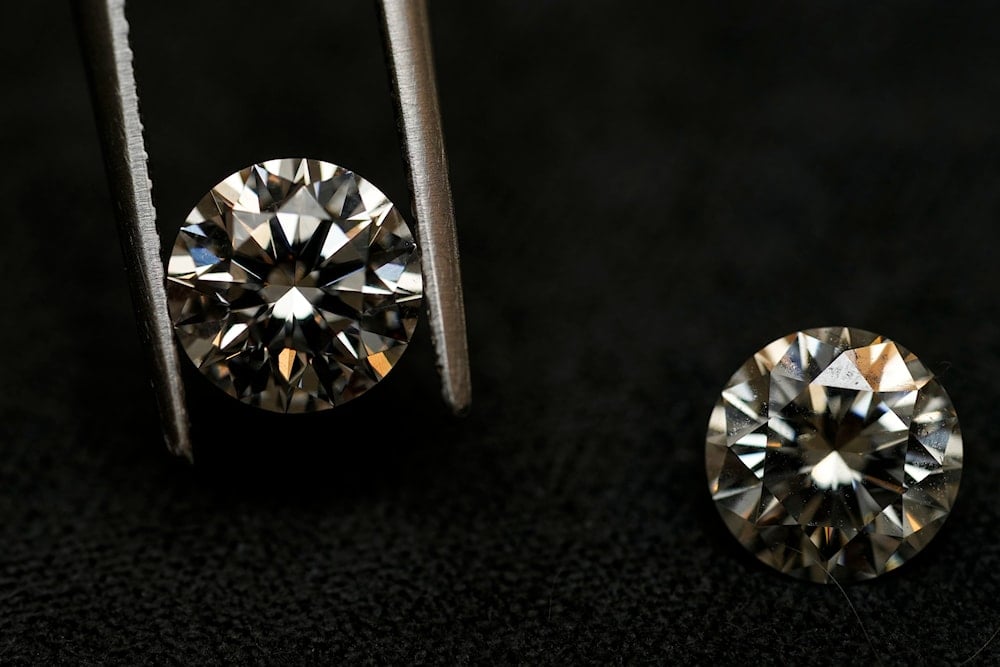Chinese scientists create diamonds 40% harder than real ones
The scientists recreated diamonds that have the structure of lonsdaleite, a rare form of diamond that was previously only found in very small sizes in crater impact sites.
-

A lab-grown diamond, left, and a natural diamond are displayed at Bario Neal, a jewelry store, in Philadelphia, Wednesday, February 7, 2024. (AP)
Chinese scientists have created an artificial "super diamond", which is 40% harder than the real thing in an advance that could lead to breakthroughs across several key industries that rely on the material, such as cutting and polishing tools.
Ultra-hard diamonds are known as lonsdaleite and are very rare, being found only in impact craters; the key difference between them and normal diamonds is structural differences, normal diamonds have a cubic structure, while lonsdaleite has a hexagonal crystal structure.
The applications of these lonsdaleites have been "largely unexplored" due to the low purity and minuscule size of most samples obtained.
Previously, the hardest diamonds known have been found only in asteroid and meteoroid impact craters.
Scientists have previously struggled to recreate the structure of lonsdaleite in labs, however, the researchers at Jilin University managed to produce the hexagonal diamonds by heating compressed graphite under controlled conditions.
China's innovation takes over the world
China has been making waves in terms of innovations, with many of its recent advancements overshadowing those of global leaders, including the United States, across several sectors and technologies.
A multinational think tank said China's GDP is likely to surpass the US GDP by 2035, making it the world's largest economy by then, forecasting that China will be able to sustain its GDP growth in the coming years.
The Chinese research and development (R&D) saw significant growth in 2024, with the National Bureau of Statistics saying that R&D expenditures exceeded $500 billion in an 8.3% increase from 2023, with R&D spending accounting for 2.68% of China's spending.
DeepSeek, a Chinese AI Chatbot, rivals chatGPT in performance allowing it to quickly top the charts in the US Apple App Store while wiping over 1 trillion dollars in the United States stock market thanks to its cheap cost: almost 20 times cheaper than chatGPT-4o.
The Chinese artificial sun broke its previous record for plasma confinement on December 30, 2024, burning for over 1,066 seconds at a temperature of 100 million degrees, a revolutionary feat in the field of clean energy.

 2 Min Read
2 Min Read










